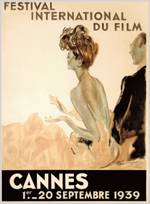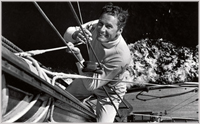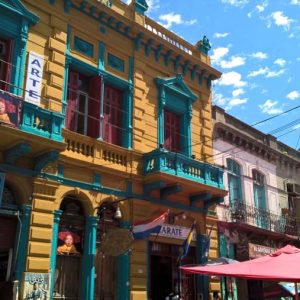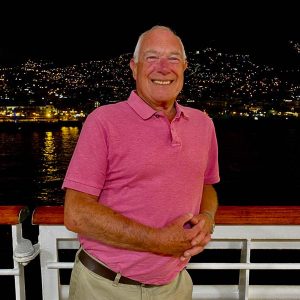One would hardly think that the ideal time to visit Cannes is during its annual film festival each May. Every hotel is fully booked, at outrageous prices far above the official rates, every restaurant is full to overflowing, and the town is gridlocked with festival traffic. Admission to the festival and its films is strictly reserved for some 35,000 film industry professionals and 4,000 journalists, with severe sanctions for anyone caught passing on tickets to friends and family.
 Yet while deals are brokered (or sometimes broken) behind the scenes in the true raison d’etre for the festival, the unreal atmosphere of fame and fortune and the beautiful people and the beautiful yachts has an awful, irresistible fascination for those of us who are mere box-office fodder. Provided that the limit of your expectations is a glimpse of the stars, by all means go to Cannes: but on a day trip by bus or train while staying in some other less frenetic Riviera resort, taking sandwiches and a thermos flask and leaving purse or wallet behind, out of reach of the prolific pickpockets. After dark, you can even watch films for free, collecting tickets at the tourist office for the open-air Cinema on the Beach. True, they are all Out of Competition – which usually means even the directors did not think they had a remote chance of a prize – but also shown are classics from the great days of cinema.
Yet while deals are brokered (or sometimes broken) behind the scenes in the true raison d’etre for the festival, the unreal atmosphere of fame and fortune and the beautiful people and the beautiful yachts has an awful, irresistible fascination for those of us who are mere box-office fodder. Provided that the limit of your expectations is a glimpse of the stars, by all means go to Cannes: but on a day trip by bus or train while staying in some other less frenetic Riviera resort, taking sandwiches and a thermos flask and leaving purse or wallet behind, out of reach of the prolific pickpockets. After dark, you can even watch films for free, collecting tickets at the tourist office for the open-air Cinema on the Beach. True, they are all Out of Competition – which usually means even the directors did not think they had a remote chance of a prize – but also shown are classics from the great days of cinema.
The Festival International du Film at Cannes had a shaky start. Its inaugural poster for 1939 is a collector’s item as the festival that never was.
The Second World War intervened and when its moving spirit, the French Minister for the Arts, Jean Zay, should have been in Cannes opening the festival, instead he was on his way to the ill-fated Maginot Line. As a Jew, Zay was among the first to volunteer and when France collapsed, among the first to join the Resistance, arrested by the Gestapo as early as August 1940. Zay escaped but in June 1944 he was murdered by an anti-Jewish faction in the Resistance and his body thrown down a well.
 The festival finally got under way on 20 September 1946. In its early years it struggled to make ends meet and was cancelled in 1948 and 1950 for lack of support. The date was changed to May from 1951 to give the festival more influence over the voting for the Oscars and in 1952 Cannes finally seemed about to get on the movie map when Errol Flynn decided to attend. With his splendid yacht anchored off Cannes, Flynn was rowed ashore by members of his Jamaican crew in jet-black uniforms, his arrival serenaded by a calypso band. Unfortunately, no sooner had Flynn stepped on to French soil than he was served a writ in connection with a European film he had endorsed, which had collapsed unfinished, owing a lot of money to its backers. Flynn looked at the writ sadly, got back into his tender, and soon his yacht was but a speck on the horizon.
The festival finally got under way on 20 September 1946. In its early years it struggled to make ends meet and was cancelled in 1948 and 1950 for lack of support. The date was changed to May from 1951 to give the festival more influence over the voting for the Oscars and in 1952 Cannes finally seemed about to get on the movie map when Errol Flynn decided to attend. With his splendid yacht anchored off Cannes, Flynn was rowed ashore by members of his Jamaican crew in jet-black uniforms, his arrival serenaded by a calypso band. Unfortunately, no sooner had Flynn stepped on to French soil than he was served a writ in connection with a European film he had endorsed, which had collapsed unfinished, owing a lot of money to its backers. Flynn looked at the writ sadly, got back into his tender, and soon his yacht was but a speck on the horizon.
Over the years huge sums have been spent to promote films released at the festival. An American production company hired an entire circus to promote Around the World in 80 Days and the party given for one thousand guests by the Greeks to advertise Never on Sunday honoured an old Greek tradition of smashing the champagne glasses: all 5,000 of them.
More Hollywood stars attend the festival these days but tend to stay for as short a time as possible: the record, two hours from start to finish, is unkindly alleged to be held by Robert Redford. The late British star, Dirk Bogarde, who lived not far away near Grasse, once observed that he never went to Cannes during the festival because the town always turned out to be full of people whom he hoped were already dead.
The 2013 Cannes Film Festival takes place from 15 to 25 May.
Roger Macdonald is a former producer of the Barry Norman Film Review programme on BBC1.











